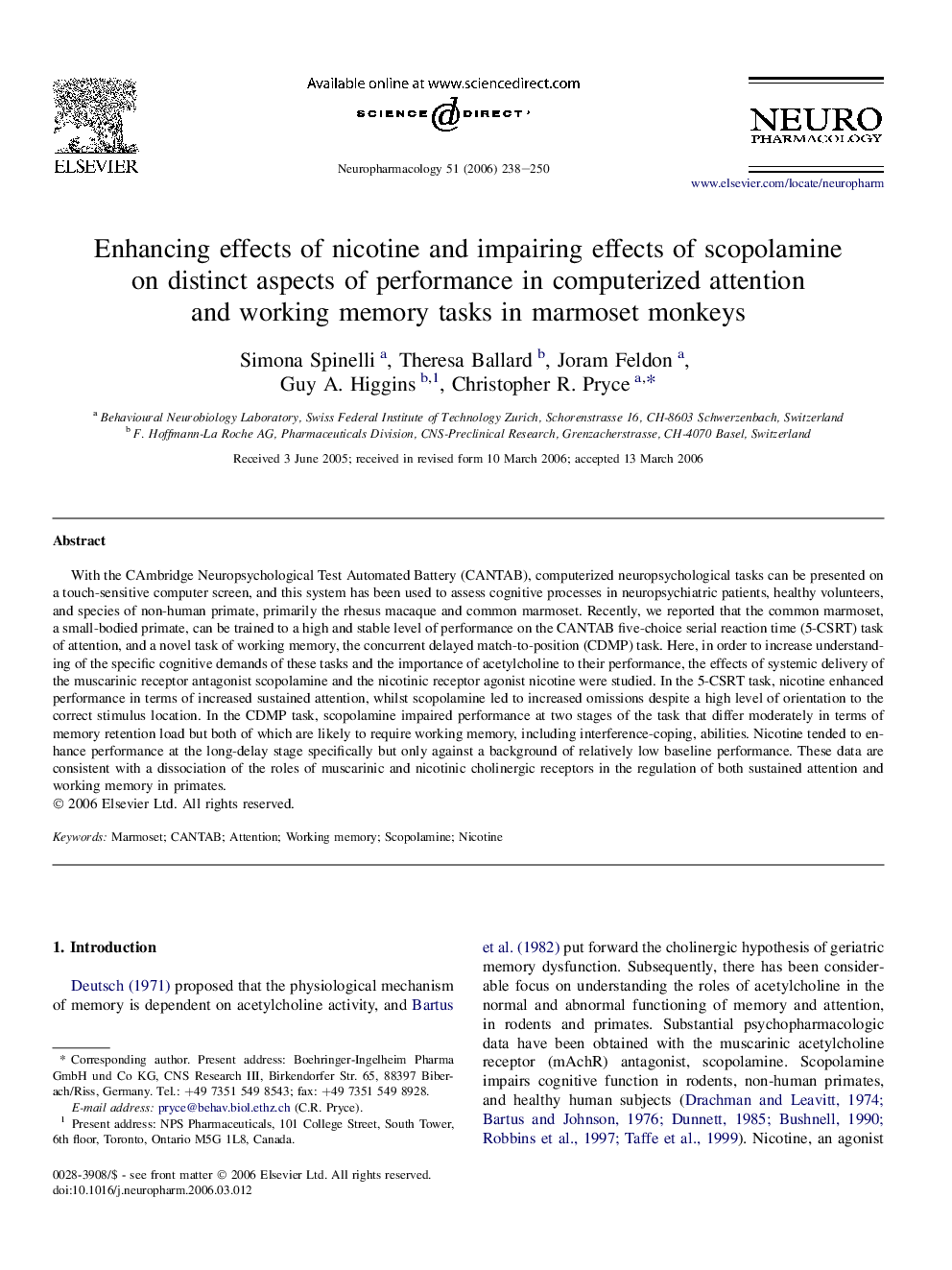| Article ID | Journal | Published Year | Pages | File Type |
|---|---|---|---|---|
| 2495044 | Neuropharmacology | 2006 | 13 Pages |
With the CAmbridge Neuropsychological Test Automated Battery (CANTAB), computerized neuropsychological tasks can be presented on a touch-sensitive computer screen, and this system has been used to assess cognitive processes in neuropsychiatric patients, healthy volunteers, and species of non-human primate, primarily the rhesus macaque and common marmoset. Recently, we reported that the common marmoset, a small-bodied primate, can be trained to a high and stable level of performance on the CANTAB five-choice serial reaction time (5-CSRT) task of attention, and a novel task of working memory, the concurrent delayed match-to-position (CDMP) task. Here, in order to increase understanding of the specific cognitive demands of these tasks and the importance of acetylcholine to their performance, the effects of systemic delivery of the muscarinic receptor antagonist scopolamine and the nicotinic receptor agonist nicotine were studied. In the 5-CSRT task, nicotine enhanced performance in terms of increased sustained attention, whilst scopolamine led to increased omissions despite a high level of orientation to the correct stimulus location. In the CDMP task, scopolamine impaired performance at two stages of the task that differ moderately in terms of memory retention load but both of which are likely to require working memory, including interference-coping, abilities. Nicotine tended to enhance performance at the long-delay stage specifically but only against a background of relatively low baseline performance. These data are consistent with a dissociation of the roles of muscarinic and nicotinic cholinergic receptors in the regulation of both sustained attention and working memory in primates.
